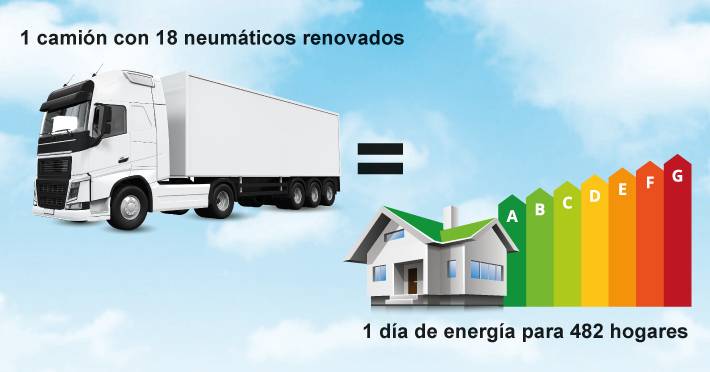Spain’s TNU asks; “Did you know that the energy savings of the retreaded tyres of a truck would supply energy to 482 homes for 1 day?”
Retreading is a process by which a used tyre is given a new useful life by replacing the original tread with a new one.
Among the advantages of this process are ecological and economic savings: savings in oil consumption, savings in water consumption, savings in energy consumption and savings in CO2 emissions into the environment.
To manufacture a new truck tyre takes 141 litres of oil, 15,680 litres of water and 338 kg of CO2 are emitted. However, to manufacture a renewed tyre everything is drastically reduced and it is possible to save: 98 litres of oil, 8,209 litres of water and 234 kg of CO2 emissions.
In Spain, approximately 500,000 retreaded truck tyres are consumed each year, and in many circumstances, they can be retreaded 2 or 3 times during the useful life of the truck tyre, multiplying its environmental and ecological benefits.
A fact that underlines the positive impact of the retreading offered by Bandag is the following: a single 18-wheeler using retreaded tyres instead of new tyres would save enough energy to power 482 homes for 1 day.
Taking into account the global energy crisis, the use of retreaded tyres is presented as a sustainable and economically viable alternative, which minimises waste, saves energy and raw materials, effectively contributing to the circular economy.
The recycling of used tyres is key to moving towards a sustainable future. In this sense, through the informative campaign “Did you know that…?” TNU claims the ecological, economic and social advantages of giving a second life to out-of-use tyres, so that progress can be made towards a more sustainable future.




















